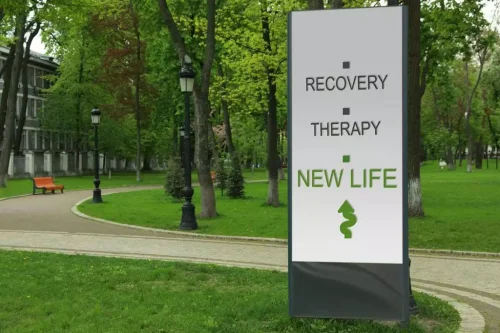
Second, every resident would contribute equally to the expenses and household duties. While Oxford House, Inc. has the sole authority to grant Oxford House charters, the World Council acts as an advisory council to the board. For more than twenty-five years, a DePaul University-based research team has been involved in studying Oxford Houses in order to better understand the role they play in substance abuse recovery. The national scope of Oxford House and its long history makes it the only recovery house system that has been the subject of so much independent research. One can only be dismissed from an Oxford House because of drinking, using drugs, non-payment of rent, or disruptive behavior.
- Individuals living in each of the Oxford Houses have also been responsible for starting many new groups of Alcoholics Anonymous or Narcotics Anonymous having meetings near an Oxford House.
- Alcoholics and drug addicts seem to have a tendency to test and retest the validity of any real, potential, or imagined restriction on their behavior.
- The alcoholic or drug addict alone begins to compare himself to those members of Alcoholics Anonymous and Narcotics Anonymous who still have family and friends.
- Later, some of us were to move into half-way houses which provided shelter, food, and supervision.
- One can only be dismissed from an Oxford House because of drinking, using drugs, non-payment of rent, or disruptive behavior.
Stay informed
One of the greatest threats to the sobriety of a recovering alcoholic or drug addict is loneliness. At a time when we acquired a serious desire to stop drinking or using drugs, many of us had lost our families and friends because of our alcoholism and/or drug addiction. Too often, newly recovering alcoholics and drug addicts are faced with the necessity of living alone and of relying solely on contacts with Alcoholics Anonymous and Narcotics Anonymous to stay sober. Some are able to keep from drinking in spite of the loneliness with which they were faced. The alcoholic or drug addict alone begins to compare himself to those members of Alcoholics Anonymous and Narcotics Anonymous who still have family and friends. Loneliness and self-pity soon lead such individuals back to alcoholic drinking or drug use.

Oxford House Manual: Chapter Manual: Sharing the Experience, Strength, and Hope of Oxford Houses for the Common Good

In fact, Oxford Drug rehabilitation House creates an environment whereby each member can more fully realize the benefits available from active AA or NA membership. A house full of sober, recovering alcoholics and drug addicts invites informal AA or NA “meetings after the meeting” and each day finds many informal AA or NA meetings before individual members each go off to their regular AA or NA meeting. During our drinking and drug use years, and even before, many of us found it difficult to accept authority. Many individuals in society are able to abide by the strict letter of any rule, regulation , or law. Alcoholics and drug addicts seem to have a tendency to test and retest the validity of any real, potential, or imagined restriction on their behavior.

A tribute to our late co-founder and CEO, Paul Molloy
- With Oxford House there is no need for a recovering individual to live in an environment dominated by loneliness.
- Equal Expense Shared (EES) is generally between 80 and 160 dollars a week and includes utilities.
- Before spreading the word, an individual Oxford House should make certain that it is sufficiently established to undertake public discussion of it goals and mission.
- Those facilities provided us with shelter, food, and therapy for understanding alcoholism.
- Starting new Houses through the mutual assistance of existing Oxford Houses is a tradition because each House was started with the help of existing Houses and tends to pass on to others that which they received.
All aspects of Oxford House operations, from the acquisition of the house to the acceptance or dismissal of members, is carried out under democratic procedures. Each member has one vote and majority rule applies except that 80% of the members must agree in accepting new persons for membership. It was the first step in a nationwide movement, now almost 50 years old, that has been credited with helping thousands of people overcome addiction and lead productive lives.

The Oxford House Model provides community based, supportive, and sober living environment.

Propagation, or spreading the word, of the Oxford House concept is given the highest priority by the members of Oxford House. For example, the landlord and phone company may require a security deposit and, while furnishings are generally donated, members will often have to rent a truck in order to pick them up. There may also be a need to buy more “staples” such as flour, sugar, coffee, etc. when a House starts up.
- Oxford House was founded not only to put a roof over our head, but also to create a home where the disease of alcoholism was understood and the need for the alcoholic to stay away from the first drink was emphasized.
- Many individuals in society are able to abide by the strict letter of any rule, regulation , or law.
- Today Oxford House has more than 20,000 residents at more than 3,500 homes across 47 states and several foreign countries.
- Our network of houses is only as strong as the community support we receive and the involvement of current and former members.
Failure to adhere to any of these three requirements would bring the entire Oxford House concept into question. Therefore, it is important that each Oxford House meet these minimum responsibilities in order for its charter to be continued. All Oxford Houses have been careful to avoid undo dependence on government or other outside funds. Every Oxford House member attributes his sobriety to Alcoholics Anonymous and/or Narcotics Anonymous. Each Oxford House member, as an individual, considers himself a member of AA and/or NA. Oxford House should rely on democratically-chosen leaders, but the leaders must always be but trusted servants.
There are over 3,500 Oxford Houses across the United States
For those of us who had been in institutions oxford house or half-way houses, resentments against authority were common. Some of us had lived for a time in alcoholic and drug rehabilitation facilities. Those facilities provided us with shelter, food, and therapy for understanding alcoholism. Initially, the structure and supervision of such facilities were acceptable because physically and mentally, we were exhausted. Later, some of us were to move into half-way houses which provided shelter, food, and supervision. As our recovery progressed, the supervision and dependency on a half-way house created dissatisfaction.






